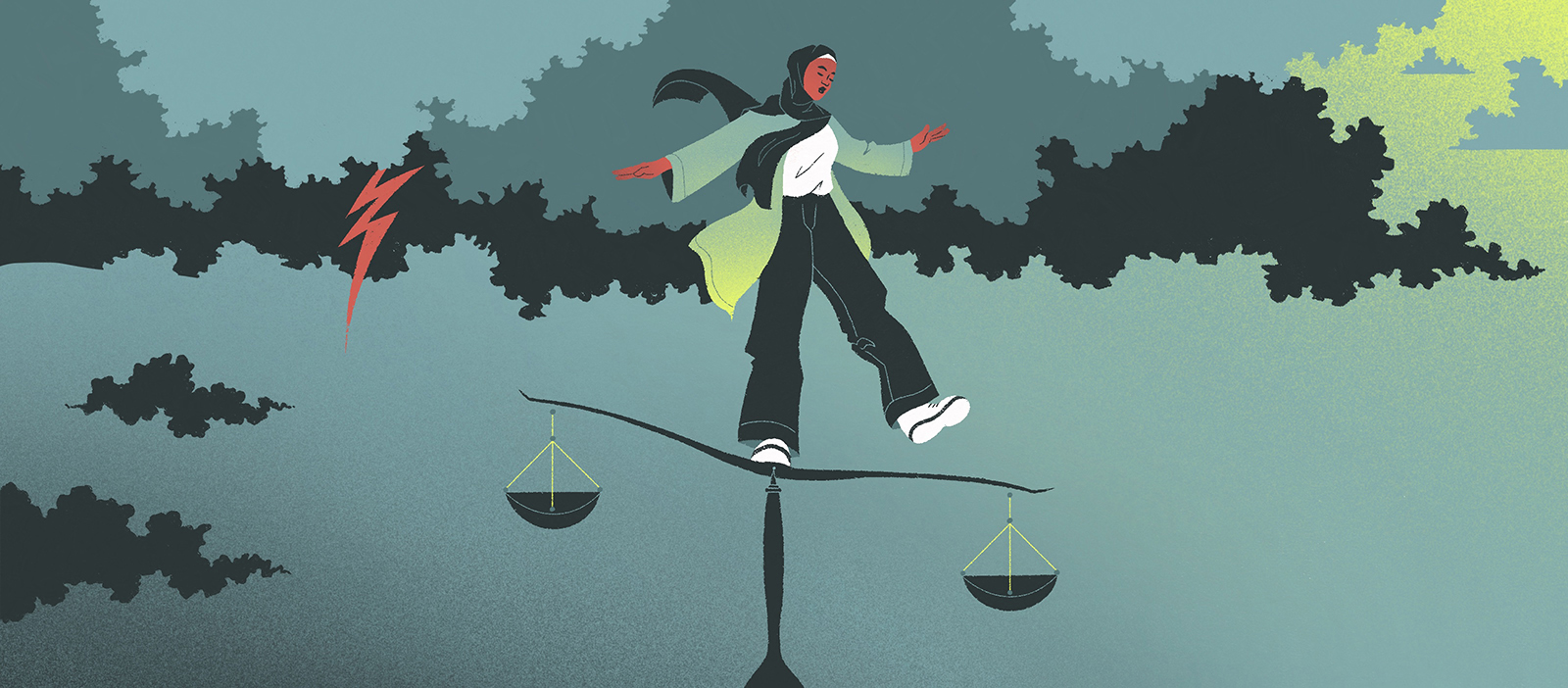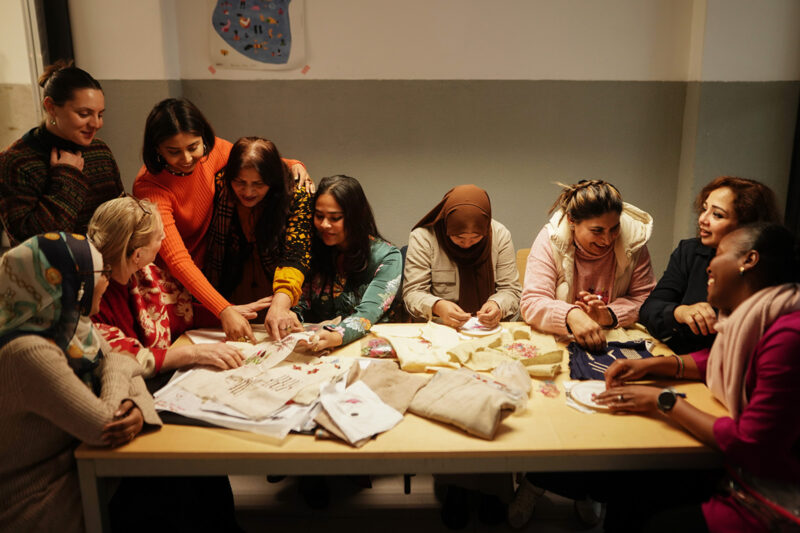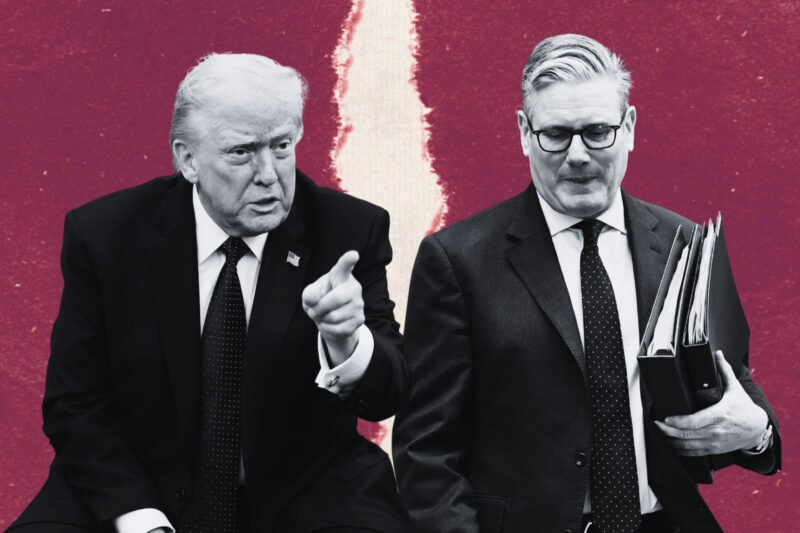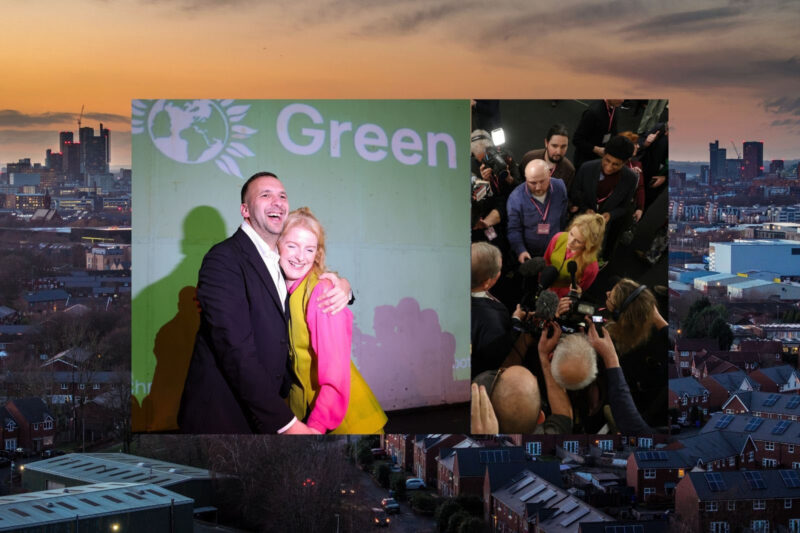
If I am in the business of changing minds, surely I should be open to change too
What is the action with more integrity: pushing someone out of your life for harmful beliefs, or maintaining a relationship that can offer an alternative perspective?
I recently spent time with an old friend I hadn’t seen for a while. It hadn’t been an intentional break; the pandemic, my peripatetic existence and general inability to keep on top of WhatsApp messages mean there are often long gaps between seeing some of my favourite people.
So much had happened since we last saw each other, introducing an element of uncertainty into the dynamic. I consider myself an open-minded person, but before we met I found myself wondering: did they support Trump? Had they refused to get the Covid vaccine? Might they have a position on trans rights, Israel, or even Andrew Tate that opposed my own?
It is rare that any elephant in the room will be acknowledged immediately, certainly not on the first coffee catch-up in years. But as we sat together, tentatively dipping our toes into the warm waters of light conversation, I could feel my friend and I skirting around the proverbial mammoth, bumping into its legs and dodging its trunk as we refamiliarised ourselves with each other, testing the boundaries and the strength of our connection.
By the end of our time together, it became clear that they had changed. Quite a lot, in fact. Their politics had shifted, moving away from my own rather than towards it. I was not so much surprised as I was saddened by this realisation, confirmation of a fear I had not been ready to face: was this the end of our friendship?
According to a friend I debriefed with, the answer was a resounding “yes”. How could I stay connected to someone who saw the world so differently? This person was wrong, their influence pernicious, and any relationship dangerous both to my politics and my reputation. This was a matter of my integrity, they argued. Black and white, clear as day.
But another friend disagreed, arguing that would be a carceral approach, one that was punitive and cruel, when grace and generosity would be the more moral choice. If I severed my relationship with them, especially without discussion, perhaps there wouldn’t be anyone in their life who could offer an alternative perspective. It was important to stay connected and offer my corrective where possible — surely this would be the kinder, more Islamic way.
I have returned to this question time and time again: if the prophet Muhammad (SAW) lived in these times, how would he be navigating these choppy, blood-stained political waters?
The situation has forced me to reflect on my interpretation of integrity, a quality I believe is of deep importance. Moving through the world with integrity is something I strive to do, and it’s a characteristic I look for in friends, family and those I trust. But is my version expansive, moral, good for the world, or limiting, constrictive, unfit for purpose? Does the very sense of what I consider to be open-mindedness somehow compromise my integrity?
Integrity, according to Wikipedia, is “a consistent and uncompromising adherence to strong moral and ethical principles and values”. Being uncompromising would suggest cutting off anyone who espouses positions or values that oppose my own. I have certainly taken that option in the past — heck, I cut off a whole country! I can think of a few cases where I have reduced contact with or withheld intimacy from individuals whose views I felt actively caused hurt or harm, particularly when they were unable or unwilling to take accountability for it. But, when I reflect more deeply, I wonder if those choices were more about protecting myself — valid, but less noble.
Perhaps what I describe as integrity is sometimes actually stubbornness, close-mindedness, or even fear, rather than me being my kindest, most virtuous self. Protecting myself is understandable, but it is not the moral value I at times make it out to be. After all, cutting people off does little to change their minds, and as a social advocate who speaks on and calls for progressive social change, I am meant to try to win people over. What, then, is the action with more integrity: pushing someone out of your life for beliefs you feel are harmful, or maintaining a relationship that might persuade them to change?
Stanford’s Encyclopedia of Philosophy’s entry encapsulates some of the difficulty I have with this question: “While it is sometimes used virtually synonymously with ‘moral’, we also at times distinguish acting morally from acting with integrity.”
If we follow that thought to its conclusion, it tallies with a lesson I’ve begun to reluctantly understand, if not yet accept — that my drive to act with integrity may occasionally clash with what it means to act morally. For example, one of my values is being open-minded, seeing each person as fully human, practising abolitionist ideals, which may not always be entirely compatible with any sense of ideological purity, and runs the risk of folks attacking my politics, my credibility.
Some issues require an uncompromising, unyielding position. Some things are black and white. But time and life has shown me that up close, very little is ever as simple as first presented. A desire for clarity, for certainty, might feel nice — oh, I know it does. But closing ourselves off to any voice or position that is different from our own is not morally superior to an approach that holds a little more space for interrogation, for dissent, for rigorous challenge. I’m not saying you should change your mind, but your values should be robust enough to allow you to engage with others, right? There is a question of honesty for me in this, too. If I am in the business of changing minds, surely I have to be open to having my own mind changed too.
 Newsletter
Newsletter













